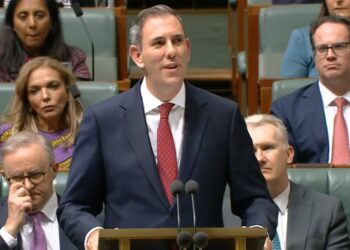With so few practising advisers and demand for service rising, DASH Technology chief executive Andrew Whelan believes that AI could play a vital role in bridging the gap, allowing advisers to increase the number of clients they can service by reducing time spent on non-client-facing tasks.
“AI allows a breakthrough in the scalability cap. Suddenly, one-to-one advice presentations transform into personalised and engaging advice, with faster advice generation and higher client satisfaction,” Whelan told ifa.
“It can allow you to be in more rooms at the same time if you are utilising AI avatars to present videos to your clients, who then view it in their own time. To that point, we’ve seen clients overhaul their businesses by making smart tweaks using AI.
“One practice has seen their client onboarding and advice generation time frames drop to one-third of the time, and their revenue grew by 150 per cent. The data is in that prove it can [be] done when implemented well.”
Although AI has proved a useful tool for advisers looking to improve scalability and efficiency while also reducing costs, Whelan said there are still risks for both advisers and clients to consider when using the technology, particularly when it comes to holding it accountable down the line.
“In its current form, AI shouldn’t be providing advice as it is too difficult to unpick an engine that is learning. For instance, if you had a client complaint and had to go back two years to understand if it was reasonable advice, what the rationale was, etc, it would be hard to establish the audit trail,” he said.
Whelan also noted concerns regarding data security. Given the highly sensitive nature of information given in the advice process, he said there are considerable concerns about where this data could be stored, and with the rise of open AI, this risk becomes even greater.
Despite cyber security awareness improving over recent years as more businesses start to implement AI, an HLB Mann Judd report found that, while 64 per cent of businesses consider cyber security a “major strategic priority”, less than a third (29 per cent) of companies have implemented additional security and governance controls related to AI.
Furthermore, just 30 per cent of businesses only engage in staff cyber security audits annually or post-incident, and just 40 per cent conduct cyber security training either quarterly or biannually.
Managing the future of AI in advice
Given the current state of the advice profession and the penchant for over-regulation in recent years that has “decimated the advice industry”, Whelan said regulators need to be mindful of not doing more harm when addressing the use of AI, while still maintaining the necessary precautionary measures.
“Demand for advice far outstrips supply. With AI implemented correctly and safely. it is going to be a pivot point in the industry if they can use it to the benefit of their customers. Essentially it should be win-win if implemented properly,” he said.
“If there was any industry likely to implement AI responsibly in the first place, it would be the advice industry because of the last 10 years of over-regulation and compliance. The Treasury has cast a wide net with its review and other industries are more at risk than advice.”
Despite AI presenting a significant opportunity for advisers to increase productivity by taking on some of their onerous responsibilities, Whelan stressed that AI is unlikely to take over an adviser’s role completely as consumers remain cautious about putting too much trust in AI.
“AI aids in solving the advice gap where supply and demand is wide, and technology is needed to help bring innovation to financial advice businesses. However, it won’t replace human advisers as trust in AI for advice, where consumers are serious about advice and have more than one goal, remains low,” he said.
“From what we know now from providing digital advice and seeing the data, people want to trust a human when it comes to making decisions about their largest assets. Because of this, the advice process is likely to become augmented by AI rather than replaced by it. It is about evolution rather than revolution.”



